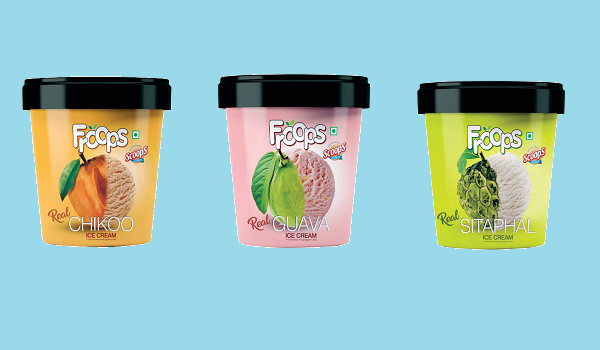As the post-pandemic world seeks organic products on their plates and in their bowls, ice cream adds to that dairy item list where the consumer desires organic sweet cold treat after a hearty meal. Many people may avoid chemically-processed and artificially-flavoured food products based on their preferences and eating habits. Now this no longer pose any hinderance to access of organic ice cream. Thanks to the readily available delicious, healthy organic scoop of ice cream, as the market is being driven by consumers’ shifting taste preferences for foods that are nutrient-rich that offer health advantages.
Organic ice cream contains only organic ingredients, it is not only healthier but also better for the planet’s ecosystem. A number of components, including milk, cream, sugar, crumbled cookies, or other foods or fruit stuff, can be used to make organic ice cream. In addition to being used in culinary dishes like cupcakes or cake icing, organic ice cream may be blended into smoothies or frozen yoghurt.
Nutrition Facts:

The Ingredients of Organic Ice Cream: Organic Milk, Organic Cream, Organic Condensed Skim Milk, Organic Cane Sugar, Organic Vanilla Extract, Organic Locust Bean Gum, Organic Guar Gum. Organic ice cream is made using non-GMO (Genetically Modified Organism) milk and cream from grass-fed animals, as well as other non-chemically treated substances such as fertilisers and pesticides. The ice cream thus manufactured along with organic ingredients, such as organic milk, cream, sugars, and flavourings, is free of artificial preservatives and flavour enhancers.
Organic ice cream is an excellent alternative to conventional ice cream. This has created numerous opportunities for both local and global market participants to experiment with product varieties and flavours giving it a good choice for health-worried and diabetic patients. Rapid mobilization has resulted in manufacturers understanding the taste and preferences of end-users, as well as maximizing the nutritional qualities of organic ice cream.
Organic Ice Cream Market Analysis & Size: According to the projection, the Organic Ice Cream Market will alter as the organic food chain’s awareness grows. During the forecast period of 2023-2030, the Organic Ice Cream Market is estimated to reach a value of USD 1686.55 to USD 1,840.98 million by 2029-30, with a CAGR of 4.57% to 5.07%. The organic ice cream market research study looks at innovative strategies used by significant rivals to grow their business.
What are the ingredients that make up organic ice cream?The most crucial ingredient in organic ice cream is milk, which must come from cows grown on organic feed and permitted to graze freely. Other important ingredients which are used for the production of organic ice cream may also be certified as organic, including sugar, eggs, and flavourings. It is tastier and a great source of minerals and vitamins. Throughout the projected period, various technological developments in the fields of cold chain infrastructure, refrigerated transport systems, and storage facilities and equipment are ready to support the entire organic ice cream business.“Choosing organic ice cream has several advantages, like potassium, which lowers blood pressure, and vitamin B complex, and calcium, which strengthens and rejuvenates bones.”
Recently, National Programme for Organic Production (NPOP) was awarded Scoops Ice Cream, Hyderabad for its prominent effort in creating an organic ice cream brand and successfully maintaining hygiene & quality at its best. Scoops Ice Cream was formulated in 1989, to introduce quality ice cream at their group of hotels.
Making the best of the time, ICT conversed with Sudhir Shah about the production challenges of organic ice cream, its market evaluation, diverse product potentials and future expansion and excerpts of the interview is mentioned hereforth :
As organic ice cream is formulated according to strict guidelines, it would not have been easy to create a market for Organic Ice cream. How do you see the years that have gone by?
Organic ice cream has indeed been subjected to strict guidelines, as it is made using only organic ingredients that are free from synthetic pesticides, herbicides, and fertilizers. However, despite the challenges of creating a market for organic ice cream, the industry has seen significant growth over the years. Consumers are becoming more health-conscious and seeking out natural, organic, and sustainably produced foods. This trend has contributed to the rise in demand for organic ice cream, as it is perceived as a healthier alternative to conventional ice cream. Our existing brand, Scoops, has introduced a new sub-brand, Froops, which uses natural and organic ingredients. This is a positive step to meet the growing demand for healthier and more sustainable food options.
Kindly give us an insight into the kind of research and evaluation that goes into making Organic Ice cream. How do you propose to spread more awareness?
The process of making organic ice cream involves extensive research and evaluation to ensure that thefinal product meets strict organic standards.
Here are some of the key steps involved:
Sourcing organic ingredients: The first step in making organic ice cream is to source organic ingredientsthat meet the required quality standards. This involves researching and identifying organic farms and suppliers that can provide the necessary ingredients.
Ingredient testing: Once the ingredients have been sourced, they are tested to ensure that they meet theorganic standards. This involves testing for the presence of pesticides, herbicides, and other chemicals.
Recipe development: The next step is to develop a recipe that uses organic ingredients to createdelicious and creamy ice cream. This may involve testing different combinations of ingredients and adjusting the recipe until the desired flavour and texture are achieved.
Manufacturing: Once the recipe has been finalized, the ice cream is manufactured in a way that meetsorganic standards. This may involve using organic equipment and processes, as well as ensuring that the ice cream is stored and transported in a way that maintains its organic integrity.
To spread more awareness about organic ice cream, here are some potential strategies:
Marketing campaigns: Companies can launch marketing campaigns that emphasize the health and environmental benefits of organic ice cream. This can include social media posts, and targeted ads.
Sampling events: Hosting sampling events at grocery stores and other locations can allow consumers to try organic ice cream and learn more about its benefits.
Education initiatives: Companies can partner with schools, community organizations, and other groups to provide education on the benefits of organic food and the importance of sustainable farming practices.
Collaborations with retailers: Collaborating with retailers to feature organic ice cream in their stores can increase visibility and create new opportunities for consumers to try the product.
It’s hard to be successful by thinking outside the box. How do you plan to expand your sphere of business in 2023?
Overall, expanding an ice cream business in 2023 requires a combination of innovation, adaptability, and collaboration. By offering unique flavours, embracing technology, expanding distribution channels, focusing on sustainability, and collaborating with others, ice cream businesses can position themselves for success in the years to come.
To expand an ice cream business in 2023 and beyond, it’s important to be innovative and think outside of the box.
Here are some strategies that can help:
Offer unique and innovative flavours: One way to differentiate an ice cream business from competitors is to offer unique and innovative flavours that appeal to consumers’ tastes. This can involve experimenting with new flavour combinations or incorporating trending flavours and ingredients.
Embrace technology: Technology is changing the way we do business, and ice cream businesses can leverage technology to improve their operations and enhance the customer experience. For example, ice cream shops can use mobile ordering apps and digital loyalty programmes
Expand distribution channels: In addition to selling ice cream in traditional ice cream shops, businesses can expand their distribution channels to reach new customers. This can involve selling ice cream in grocery stores, modern trades, and shopping centres and partnering with food delivery services.
Focus on sustainability: Consumers are increasingly prioritizing sustainability when making purchasing decisions. By focusing on sustainability and incorporating sustainable practices into their business model, ice cream businesses can attract more environmentally conscious consumers and differentiate themselves from competitors.
India has tremendous potential to create a wide range of organic products. What opportunities do you see in the future?
India has a large and growing population of consumers who are increasingly interested in healthy and sustainable food products. This presents a significant opportunity for organic ice cream products in India.
Some of the opportunities for organic ice cream in India are: Growing demand for organic products: With the increased awareness about health and wellness, consumers are looking for organic and natural products. This trend is also seen in the ice cream industry, where consumers are looking for healthier options. Organic ice cream can cater to this demand.
Increasing disposable income: With the growing economy and increasing disposable income, consumers are willing to pay more for premium and healthy products. This presents an opportunity for organic ice cream brands to price their products higher and differentiate themselves from conventional ice cream brands.
Growing tourism industry: India is a popular tourist destination, and the tourism industry is growing rapidly. Tourists are often looking for local and unique food experiences, and organic ice cream can provide an opportunity for ice cream brands to offer a unique experience to tourists.
Rising interest in plant-based products: There is a growing trend towards plant-based and vegan products, and this presents an opportunity for organic ice cream brands to offer plant-based ice cream alternatives.
Diverse flavours and ingredients: India is known for its diverse flavours and ingredients, and this can be leveraged by organic ice cream brands to create unique and innovative ice cream flavours that cater to the Indian palate.
What is your perception of the market in the last 3 years?
The Indian ice cream market is expected to grow at a CAGR of around 12% between 2021 and 2026, according to a report by IMARC Group. Overall, the Indian ice cream market is expected to continue to grow in the next 3 years, driven by factors such as rising disposable incomes, increasing demand for premium and natural products, and the availability of a wide range of flavours and products.


